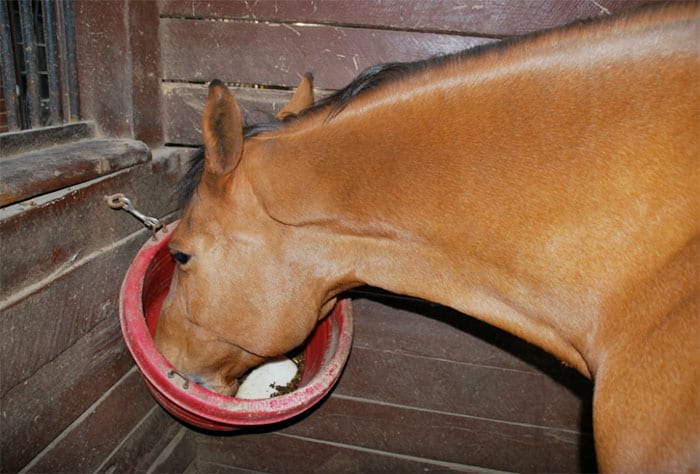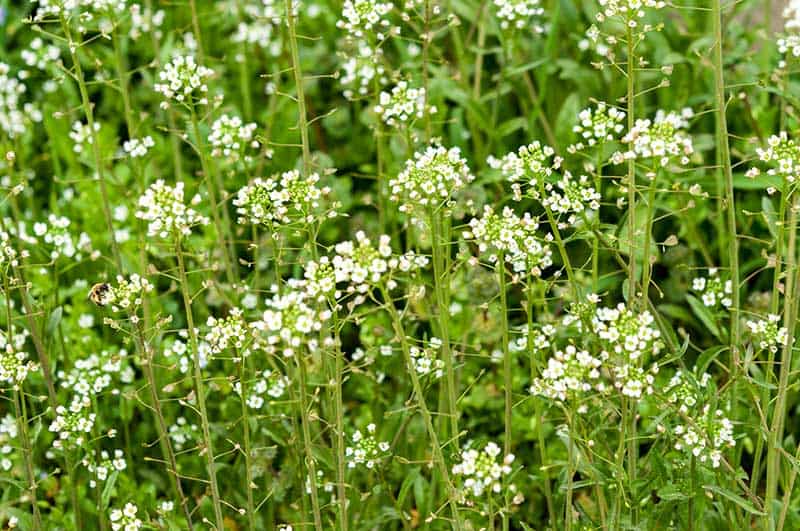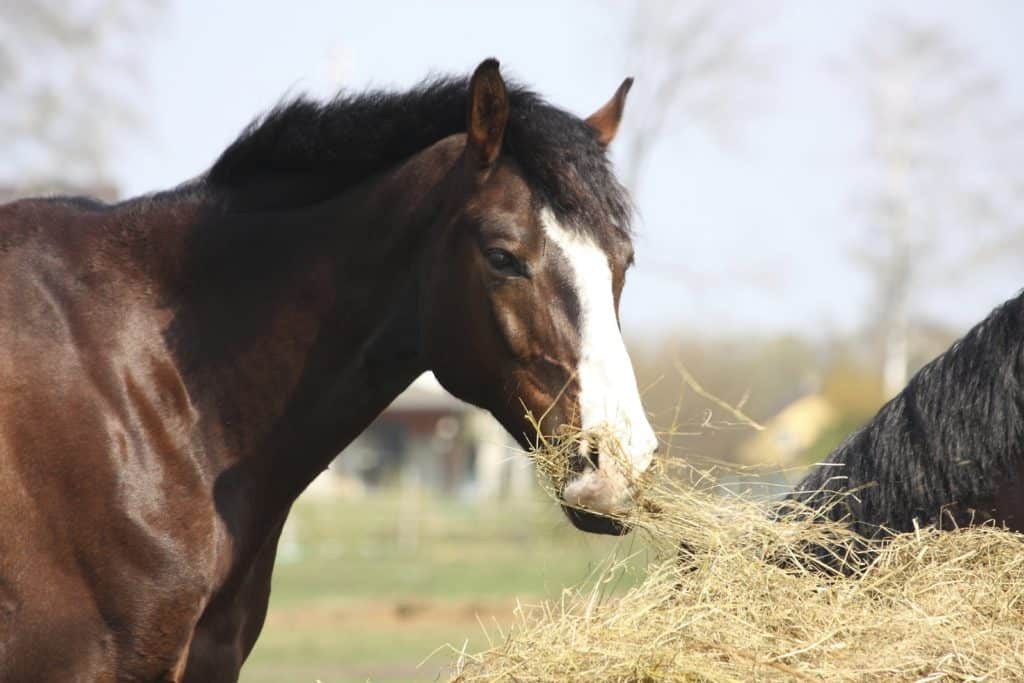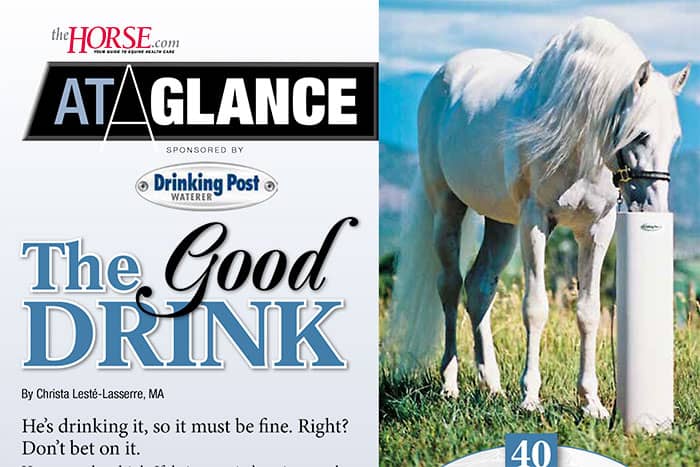
Low-Dust Forages Essential for Asthmatic Horses
Ditching dry hay in favor of cleaner forage options improved racehorse airway inflammation.

Ditching dry hay in favor of cleaner forage options improved racehorse airway inflammation.

Does your horse need a dollop, dab, pinch, or peck? Learn to formulate a diet based on your horse’s age, body condition, and health status.

Researchers say progressive changes in diets lead to healthier microbiomes and fewer digestive issues, such as diarrhea and colic.

Showing, training, traveling, or even lifestyle changes can put your horse under stress that risks his health. The right nutritional choices can support his immune system, GI tract, and overall well-being. Learn how.

Researchers found blanketed horses during a Wisconsin winter ate 8% less free-choice hay than their unblanketed peers while maintaining similar body conditions.

From winter and summer annuals to perennials and biennials, learn how to prevent and manage pasture weeds.

Blending at least 15% chaff with a horse’s feed can increase consumption times and reduce health risks such as colic and choke.

While nutritionists working with ruminants tend to focus on the nutrient content of feeds on a dry matter basis, in equine nutrition we mostly focus on the as-fed value of nutrients.

Learn about how rain during harvesting can affect hay quality and whether you should feed rained-on hay to your horses.

Their names might sound the same, but their molecular makeups are different. Are organic or inorganic forms of trace and macrominerals better for horses?

To ensure your horse stays hydrated, provide him with fresh, clean, clear water at appropriate drinking temperatures. Here’s how.

If you live at northern latitudes, you might lack vitamin D. But what about your horse?

Learn about your horse’s health, behavior, and personality as you acclimate him to a new home, diet, and herd.

Though they make up only a tiny part of horses’ diets, micronutrients play big roles in major physiological functions, ranging from bone and muscle performance to digestion to hormone signaling.

Horse owners are rightfully concerned about their horses’ lung health after wildfire smoke exposure. But can the smoke and ash also affect their pastures and forage?

Vitamin E serves as one of the body’s most potent antioxidants, protecting various cells—including those of the immune system—from the harmful effects of free radicals.
Stay on top of the most recent Horse Health news with
"*" indicates required fields